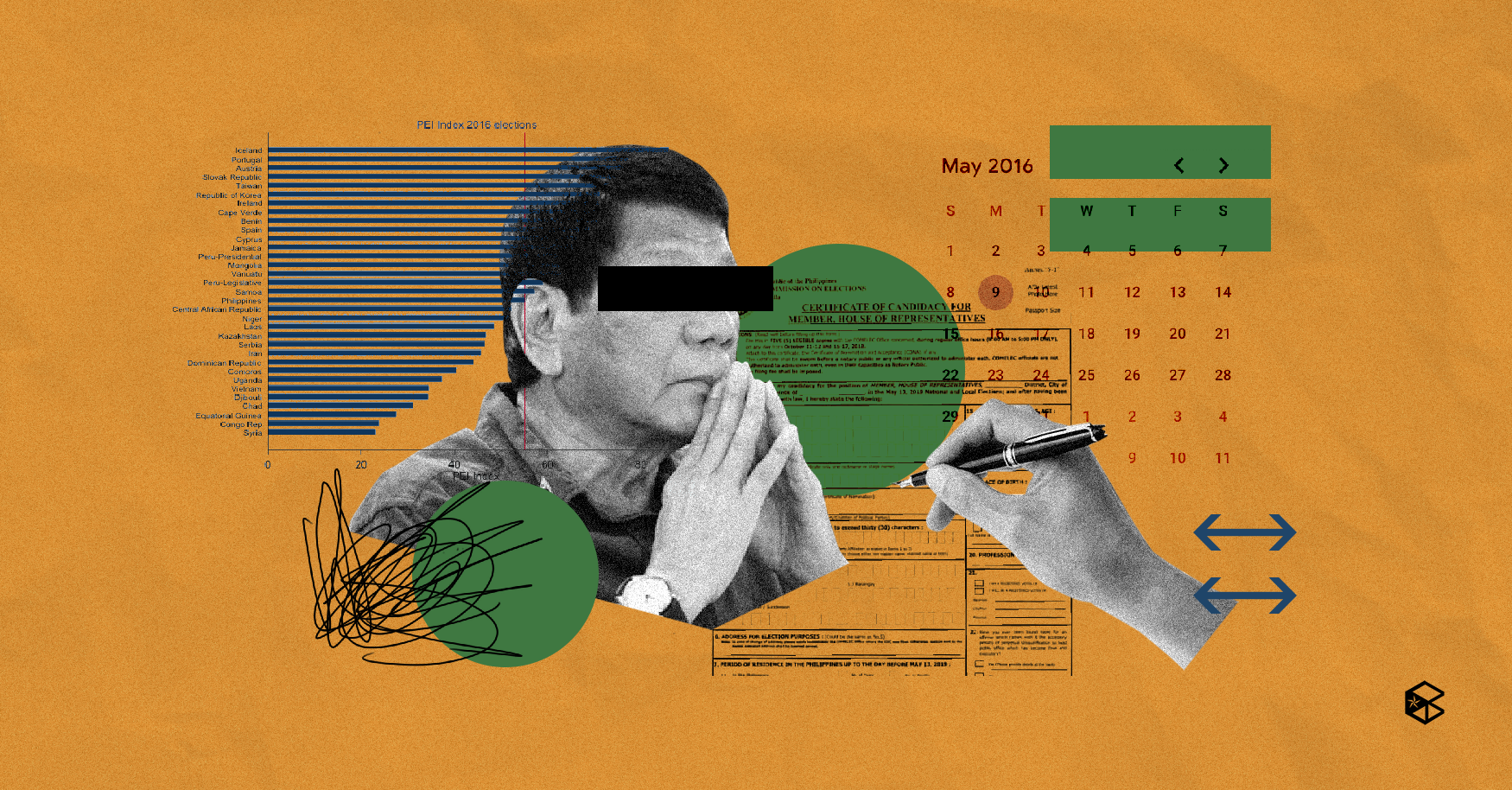In accordance with the Comelec Resolution No. 10717, a duly registered candidate holds the right to withdraw from their participation in the elections. This is what happened in the case of former PDP-Laban presidential candidate Martin Diño who was substituted by President Rodrigo Duterte in the 2016 presidential elections.
The withdrawal of an aspirant from his candidacy at any time before election day is deemed lawful to the electoral process. Each aspirant holds the right to withdraw from their participation in the elections even after filing their certificate of candidacy (COC).
Making sense of the COMELEC Substitution Policy
According to Section 77 of the Omnibus Election Code of 1985, the rule of substitution is applicable on three grounds: death, disqualification, and withdrawal. This prevailing rule for substitution is contrary to the Revised Election Code of 1947 that recognizes only two grounds for substitution, namely death and disqualification.
The prevailing rule was further expounded in Resolution No. 10717 which states that an aspirant who dies, withdraws, or is disqualified may be substituted by another aspirant nominated under the same political party or coalition. Section 12 of Republic Act 9006 indicated that as much as possible, the name of the substitute candidate should bear the same surname of the substituted candidate. This is specifically mandated if the substitution will take place after the printing of the ballot for the purpose of fitting it into the automated system of election chosen by COMELEC. As per independent candidates, substitution is prohibited.
Following COMELEC Resolution No. 10430, substitution in the case of death or disqualification is valid until mid-day of the election day. The Supreme Court upholds that substitution on the grounds of withdrawal, however, is only permitted while the printing and accommodation of ballots have yet to start. If a candidate happens to withdraw after the printing, no substitution can be accommodated.
In the context of pre-election proceedings for the upcoming 2022 elections, substitution in the grounds of withdrawal is set on Nov. 15, 2021. Whereas substitution in the grounds of death and disqualification is allowed until the midday of the election itself.
Will this endanger the electoral process of the upcoming elections?
During the national elections in 2015, Rodrigo Duterte took a seat in the presidential race at the last minute. He replaced Martin Diño as the presidential bet of the Partido Demokratiko Pilipino-Lakas ng Bayan (PDP-Laban) due to a withdrawal of candidacy. Fast forward to 2021, the victory of Duterte’s presidential candidacy was accompanied by human rights abuses and curtailment of democratic freedoms in the country.
Former COMELEC chair Sixto Brillantes Jr. explained that the right to substitute the withdrawing candidate is a vulnerable target for dirty political tricks in the electoral process. Greatly traumatized by the political plot twist adopted by Duterte in the last election, some, including veteran election lawyer Romulo Macalintal, called for amendments in the existing substitution policy. Senators Nancy Binay, Joel Villanueva, Grace Poe, Sherwin Gatchalian, and Juan Miguel Zubiri proposed measures that would restrict the substitution of candidates following the speculations that some presidential bets, like Senator Bato de la Rosa running under PDP-Laban, are only placeholders ahead of the deadline.
While the existing public fear is valid, Comelec Chairman Sheriff Abas assured the public during an online press briefing that fairness will be upheld and the same scenario from 2015 will not happen again.
Successful pursuit of candidacy corresponds to a bona fide intention according to Luie Tito Guia, the former Election Commissioner. Hence, some have claimed that a sudden withdrawal of a candidate is an indication of a political power play that endangers electoral governance in the country.


